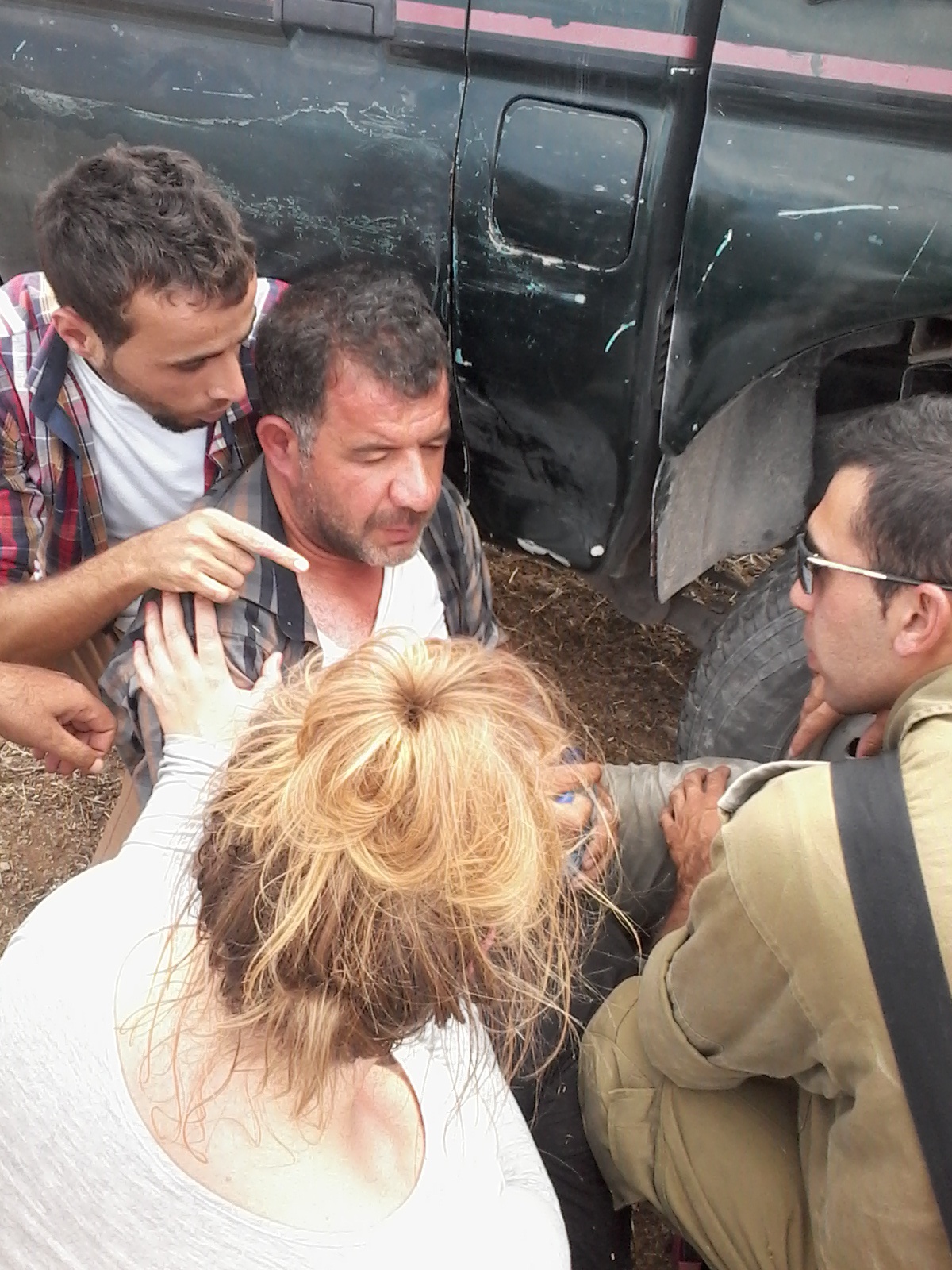Tag: Khirbet Al-Tawil
-
Israeli forces demolish three houses, and several water pipes and roads in village near Nablus
4th November 2014 | International Solidarity Movement, Nablus Team | Khirbet Al-Tawil, Occupied Palestine Early on Monday morning, while the inhabitants of the village of Khirbet Al-Tawil, near Aqraba (Nablus), were sleeping, eight military vehicles, and 30-40 Israeli soldiers entered the village. Within two hours the military had demolished three houses, and several water pipes and roads. The…
-
Israeli soldiers delay medical treatment to arrested Palestinian
1st October 2014 | International Solidarity Movement, Nablus Team | Khirbet Al-Tawil, Occupied Palestine On Monday morning, the 29th of September, settlers and the Israeli army invaded the village of Khirbet Al-Tawil east of Aqraba. They destroyed the village’s main electrical cable and water pipe. The inhabitants of the village have been without electricity and running water since…


